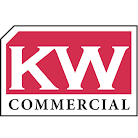Parking Requirements for Restaurant Properties: What Buyers Need to Know (San Antonio, Texas)
Introduction
When evaluating a restaurant property, most buyers focus on the kitchen layout, dining space, or location. But one factor that can directly impact your business — and even determine whether your restaurant gets approved — is parking.
Local governments often have strict parking requirements for restaurants, and failing to meet them could delay permits or limit your seating capacity. Here’s what you need to know about parking when buying a standalone restaurant property.
🚗 Why Parking Is So Important
Parking isn’t just about customer convenience — it’s tied to zoning compliance, fire code, accessibility laws, and even your building’s maximum occupancy. If your property doesn't meet the city's parking minimums, you could face delays, reduced capacity, or expensive workarounds.
📐 Common Parking Requirements for Restaurants
While parking rules vary by city, most municipalities require:
-
A minimum number of spaces based on indoor and outdoor seating
-
1 space per X number of seats (e.g., 1 space per 3–5 seats)
-
Additional spaces for employees
-
Accessible (ADA-compliant) parking spots
-
Adequate ingress/egress for fire and emergency vehicles
Note: Drive-thru or takeout-focused concepts may have separate or reduced requirements.
🧾 What to Look For When Touring a Property
Before you fall in love with a building, ask these questions:
✅ How many total parking spaces are on-site?
✅ Are there any shared parking agreements with neighboring businesses?
✅ Does the lot include ADA-compliant spaces and ramps?
✅ Is there room to expand parking if needed?
✅ Are parking layouts, lighting, and signage in good condition?
⚠️ Common Pitfalls to Avoid
-
Assuming nearby street parking is enough: Cities typically don’t count street parking toward required minimums.
-
Ignoring unstriped or poorly maintained lots: You may need to repave and re-stripe to meet code.
-
Overlooking valet, delivery, and rideshare zones: Modern restaurant concepts often require additional considerations beyond standard parking.
🧠 What If the Property Doesn’t Meet Parking Requirements?
You may still have options:
-
Apply for a variance: Some cities allow exceptions if you prove that full compliance isn’t feasible.
-
Negotiate a shared parking agreement: This is common in multi-tenant plazas or near churches and offices.
-
Reconfigure the building layout: Reducing seating or changing the use type could lower the required parking ratio.
Just make sure your real estate agent or land use attorney adds the right contingencies to your contract, so you're not locked into a property you can’t use.
✅ Final Thoughts
Parking might not be the flashiest part of buying a restaurant, but it can be a deal-breaker if you don’t plan ahead. Before you buy, confirm that the property meets (or can meet) local parking codes — and that it fits your business model and customer flow.
Need help analyzing a restaurant property in Texas? I can help you evaluate not just the space, but everything that goes with it — including zoning, parking, code compliance, and more. Let’s find the right location with the right setup.
Amir Keshmiri Ebadi REALTOR®| KW Commercial
Service area: Bexar County and Surrounding
.png)


Comments
Post a Comment